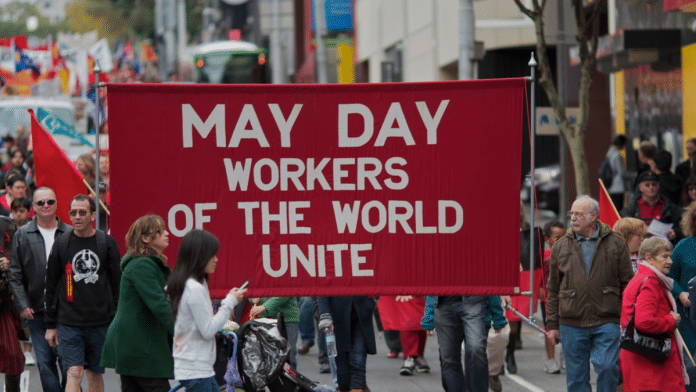Thank you dear subscribers, we are overwhelmed with your response.
Your Turn is a unique section from ThePrint featuring points of view from its subscribers. If you are a subscriber, have a point of view, please send it to us. If not, do subscribe here: https://theprint.in/subscribe/
Each year, May 1 rolls around and brings with it a familiar label: Labour Day or International Workers’ Day. Offices shut, government notices are circulated, and in many countries, the day passes uneventfully as just another holiday. A few labour unions may hold processions, social media users post nostalgic tributes to workers’ rights, and editorials briefly remember the historical significance. But for most, especially the younger generation, May Day feels distant—an echo from a bygone era rather than a day of urgent relevance.
This slow drift into ceremonial obscurity is not just unfortunate; it signals a disconnect between tradition and present-day realities. The labour force has changed dramatically, but the narrative of May Day has not.
The origins of May 1 lie in the late 19th century, rooted in the American labor movement’s struggle for the 8-hour workday. The 1886 Haymarket Affair in Chicago—where peaceful protests turned violent—became a watershed moment that led to the global recognition of May 1 as a day for workers to unite and demand their rights. Over the next century, it evolved into a powerful symbol of trade union strength, state-supported labour reforms, and collective bargaining. In countries like India, it inspired protective labour legislation, minimum wage guarantees, and recognition of the dignity of labour.
But the 21st century tells a different story. The very definition of “worker” has transformed. The global workforce today is more fragmented, individualized, and digital than ever before. Factory floors are no longer the center of labour movements. Instead, we have gig workers, freelance designers, delivery riders, tech coders, app-based drivers, remote consultants, and platform creators—many of whom operate outside the purview of traditional employment frameworks.
Trade unions, once the backbone of the labour movement, have witnessed a steep decline in influence. Labour laws, often designed for the industrial age, have not kept pace with the fluid, flexible, and informal nature of modern employment. Even the public sector, traditionally a bastion of stable employment, is being restructured with contractual hiring and performance-based models. The result: a growing population of workers without job security, without social protections, and often without a collective voice.
In such a rapidly changing landscape, May Day has not evolved. It remains shackled to a language of class struggle and factory-era grievances, which, while historically important, no longer encompass the complexity of contemporary labour issues. As a result, the day feels increasingly symbolic rather than substantive.
This is not to argue that May 1 should be discarded. On the contrary, its core values—fairness, dignity, decent working conditions, and equity—are more urgent today than ever. But these values must be articulated in the vocabulary of today’s workforce. The holiday must serve as a platform to address gig economy exploitation, lack of healthcare and retirement benefits for informal workers, the loneliness and burnout of remote professionals, AI-led job displacements, and the growing wealth gap between digital corporations and those who power them.
A renewed Labour Day must also be more inclusive. It should acknowledge unpaid care work, often done by women, which remains unrecognized and undervalued. It should engage with the aspirations of the youth, who are often overqualified, underemployed, and left out of policy conversations. And it must bridge the gap between government policy, corporate responsibility, and worker welfare in a language that is pragmatic, forward-looking, and inclusive.
Until then, May 1 will continue its quiet descent into irrelevance—not because the need for labour rights has disappeared, but because the holiday has failed to reflect the lived realities of those it claims to honor. If we wish to preserve its relevance, we must reimagine it—not just as a day off, but as a meaningful opportunity to reflect on what work means in our times, and how societies can ensure that progress does not leave the worker behind.
Mohan MURTI, FICA Advocate & International Industry Arbitrator, Member, Supervisory Board, a Innoplexus AG, Former Managing Director-Europe, Reliance Industries Ltd, Germany
These pieces are being published as they have been received – they have not been edited/fact-checked by ThePrint.


